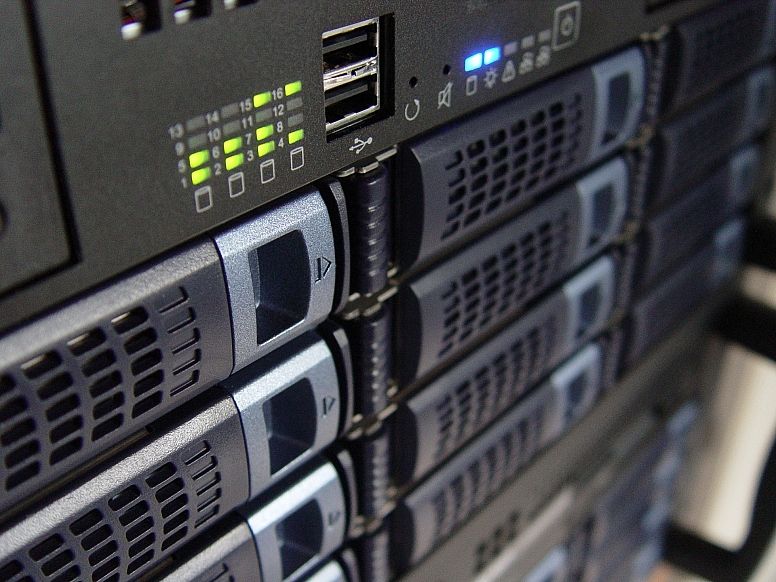
Understanding the Role of Web Servers in the Modern Web
In today's digital age, the Internet has become an integral part of our lives, and the importance of web servers cannot be overstated.
What is a Web Server?
A web server is a software application that serves content to clients over the World Wide Web. In simpler terms, a web server is the foundation on which websites and web applications are built.
A web server operates by receiving requests from clients, such as web browsers, and delivering the requested content in the form of web pages, images, or other multimedia content. It is responsible for managing and storing web pages, databases, and other resources that are required to serve content over the Internet.
The most common type of web server is the HTTP server, which uses the Hypertext Transfer Protocol (HTTP) to communicate with clients. HTTP is a standardized protocol used to exchange information between web servers and clients. When a client requests a web page from a web server, the server processes the request and responds with the requested content.
How Web Servers Work
Web servers can run on any computer that is connected to the Internet, but they are typically hosted on dedicated servers that are specifically designed for web hosting packages. These servers are optimized for handling large amounts of traffic and are equipped with high-speed Internet connections, redundant power supplies, and other features that ensure maximum uptime and reliability.
Web servers can also be used to run web applications, such as online stores, social networks, and content management systems. These applications are built using a combination of web technologies, including HTML, CSS, JavaScript, and server-side programming languages like PHP, Python, and Ruby.
In addition to serving web content, web servers can also be used to collect and store data from clients, such as user information and weblogs. They can also be configured to extract data from websites, which can then be analyzed to improve the performance and security of the web server and to gain insights into user behaviour and preferences.
To summarize, a web server is a crucial component of the modern web, serving as the backbone of websites and web applications. It enables us to access and share information across the Internet, and it plays a vital role in the functioning of our digital world.
The Importance of Protocols in Web Servers

Let's delve a bit deeper into the technical aspects of a web server. As mentioned before, a web server is a software application that listens to requests from clients and serves them content over the Internet. To do this, it relies on several different technologies and protocols.
The most commonly used protocol for web servers is the Hypertext Transfer Protocol (HTTP). HTTP is a text-based protocol that is used to request and deliver web pages, images, and other content over the Internet. It operates on top of the Transmission Control Protocol (TCP), which ensures the reliable delivery of data between clients and servers.
When a client requests a web page from a web server, the server responds with a status code indicating whether the request was successful or not. If the request is successful, the server sends the requested content back to the client in the form of HTML, CSS, JavaScript, or other types of files.
Optimizing Web Servers for Maximum Uptime and Reliability
Web servers typically run on dedicated hardware that is optimized for web hosting. This hardware includes high-speed Internet connections, redundant power supplies, and other features that ensure maximum uptime and reliability. In addition, web servers are often configured to run multiple instances of the web server software, allowing them to handle large amounts of traffic.
One of the most important features of a web server is its ability to handle multiple simultaneous connections from clients. To do this, web servers use a technique called multithreading, which allows them to process multiple requests at the same time. When a new connection is received, the web server creates a new thread to handle the request, ensuring that the server can continue to serve other clients while the request is being processed.
Running Web Applications on Web Servers
Web servers can also be used to run web applications, such as online stores, social networks, and content management systems. These applications are built using a combination of web technologies, including HTML, CSS, JavaScript, and server-side programming languages like PHP, Python, and Ruby. The web server runs the application code and generates dynamic content that is sent to the client in response to requests.
Collecting and Analyzing Data with Web Servers
Finally, web servers can be configured to collect and store data from clients, such as user information and weblogs. This data can be used to improve the performance and security of the web server and to gain insights into user behaviour and preferences. For example, weblogs can be analyzed to identify trends in user traffic, while user information can be used to personalize content and improve the user experience.
The Crucial Role of Web Servers in the Digital World
In conclusion, a web server is a complex piece of software that plays a critical role in the functioning of the modern web. It is responsible for serving web content, running web applications, and collecting data from clients. Without web servers, the Internet as we know it today would not be possible.














